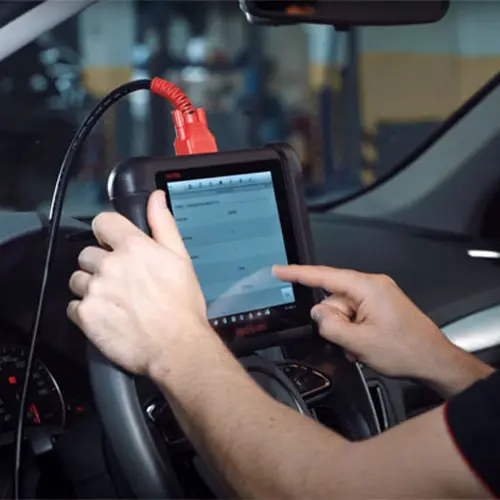Why Is Emergency Car Key Repair So Popular?
페이지 정보

본문
Emergency Car Key Repair: A Comprehensive Guide
Car keys are an important part of vehicle ownership, and their sudden breakdown can cause considerable inconvenience. Whether lost, broken, or damaged, knowing how to deal with emergency car key repair is vital for any vehicle owner. This comprehensive guide checks out numerous elements of car key repair and replacement, addressing common concerns, possible solutions, and the value of expert services.

Understanding Car Keys
Modern car keys can be found in different types, each featuring distinct technologies and functionalities. The primary types include:
- Traditional Mechanical Keys: The simplest form, these keys operate through a mechanical locking mechanism.
- Transponder Keys: Equipped with a chip that communicates with the car's ignition system for improved security.
- Key Fobs: Remote gain access to systems that frequently consist of keyless entry features.
- Smart Keys: Advanced systems that enable keyless ignition and entry, typically found in more recent vehicles.
Typical Issues with Car Keys
In emergency scenarios, comprehending the cause of car key malfunction can help determine the best approach for repair. Some often come across problems include:
- Key Breakage: Often happens due to use and tear or extreme pressure when inserting or turning the key.
- Lost Keys: Misplacement or loss of keys can leave a vehicle owner stranded.
- Dead Key Fob Battery: A common issue with remote keys, resulting in failure in keyless entry or ignition.
- Transponder Key Malfunction: If the chip in the key is harmed, the vehicle might not acknowledge the key.
- Lock Cylinder Issues: Problems with the ignition or door lock cylinders can avoid the key from turning appropriately.
Do It Yourself Emergency Car Key Repairs
Before availing expert services, specific circumstances may enable DIY repairs. However, these approaches depend upon the concern at hand. Below are some approaches:
1. Broken Key Repair
Materials Needed: Super glue, a pair of pliers, and wet wipes.
Actions:
- Carefully align the two pieces of the broken key repair - Git.arswarog.ru - key.
- Apply a small amount of extremely glue to the break and hold the key together for a couple of minutes.
- Wrap the key with tape to offer additional assistance while the glue dries.
- If the key breaks again, think about getting a duplicate made.
2. Dead Key Fob Battery Replacement
Materials Needed: New battery (usually CR2032), little flat-head screwdriver.
Actions:
- Open the key fob using the screwdriver.
- Eliminate the old battery carefully.
- Replace it with a new battery, guaranteeing the favorable (+) side deals with the right direction.
- Close the fob and test the functions.
3. Lock Cylinder Issues
If your key won't turn in the lock, it may be due to debris or issues with the cylinder itself.
Materials Needed: Lubricant spray, an old toothbrush or cloth.
Steps:
- Spray a percentage of lube into the lock cylinder.
- Utilize a fabric or old tooth brush to clear any debris or dirt.
- Attempt to turn the key carefully.
When to Seek Professional Help
While lots of problems may be resolved through DIY methods, some issues require the expertise of an expert locksmith or car dealer. The following circumstances generally warrant professional intervention:
- Severe Damage: If the key is substantially harmed or broken, changing it might be necessary.
- Transponder Key Issues: Expert reprogramming may be required if the key fails to interact with the vehicle.
- Key Duplication: For complex key types, a locksmith ensures accurate duplication or replacement.
Benefits of Choosing Professional Services
- Proficiency: Professionals have the required training and experience to handle numerous types of keys.
- Time Savings: Instead of trial and error, professionals can resolve issues efficiently.
- Access to Technology: Locksmiths can reprogram transponder keys and key fobs that require customized devices.
Comparison Table: DIY vs. Professional Services
| Element | DIY Solutions | Professional Services |
|---|---|---|
| Cost | Low (very little tools) | Higher (service charges) |
| Skill Required | Standard | Advanced |
| Time Efficiency | Variable | Fast |
| Repair Capabilities | Limited to small concerns | Wide variety of repairs |
| Tool Accessibility | Standard tools | Specialized equipment |
Frequently Asked Questions (FAQs)
1. Can I get a car key made without the initial?
Yes, a locksmith can often develop a duplicate key using the vehicle's VIN (Vehicle Identification Number).
2. The length of time does it take to change a car key?
The time required depends on the key type and the intricacy of the locksmith's work. Fundamental keys may take a couple of minutes, while electronic key fobs might take longer.
3. Will my car warranty cover key replacement?
Generally, car warranties do not cover key replacement. However, it's best to check with your dealer relating to coverage specifics.
4. Is it safe to purchase car keys online?
Purchasing car keys online can be risky; it's vital to make sure that the supplier is credible. Numerous keys require programming that can only be done by specialists.
5. What should I do if my key gets stuck in the ignition?
If your key is stuck, prevent forcing it out. Rather, turn off the vehicle, guarantee the gear is in 'Park,' and gently wiggle the key. If it does not come out, look for expert help.
Managing emergency car key repairs can be difficult, however comprehending the kinds of keys, common concerns, and repair alternatives can relieve the stress. While DIY techniques can be efficient for minor repairs, understanding when to call an expert can save time, frustration, and ultimately, money. By being proactive and informed, vehicle owners can ensure they are well-prepared for any car key emergencies.

- 이전글Robotic Hoovers: The Future of Household Cleaning 25.07.21
- 다음글You'll Be Unable To Guess Luton Car Locksmiths's Secrets 25.07.21
댓글목록
등록된 댓글이 없습니다.

